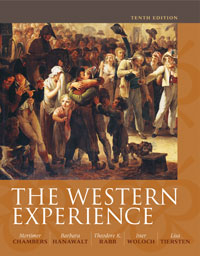| A) | sacraments Means by which God distributes grace. Luther retained only baptism and the Eucharist.
|
| B) | A special papal court instituted by Pope Gregory IX for the purpose of rooting out heresy.
|
| C) | Brief pamphlets or leaflets, often satiric, making sharp comments about a major issue of the day.
|
| D) | The Latin translation of the Bible in the fourth century, identified with St. Jerome, which became the medieval Church's standard text and was deemed holy in the sixteenth century.
|
| E) | The period of major change and variance in the fundamental beliefs of Christianity. The demands of the faithful varied and intensified throughout Western Europe, making it difficult for the Roman Catholic Church alone to accommodate all of them.
|
| F) | Having to do with an ideal society, as presented in Sir Thomas More's book Utopia, which means "nowhere" in Greek.
|
| G) | Grants to sinners by the Roman Catholic Church that reduce time for their souls in purgatory before they can ascend to heaven.
|
| H) | Individuals who, pointing out that the Bible nowhere mentions infant baptism, argued that the sacrament was effective only if the believer understood what was happening and that therefore adults ought to be rebaptized. Opponents argued that infant baptism was necessary so that a baby would not be denied salvation if it died young.
|
| I) | Also known as communion; Christian sacrament offered during a religious service in which consecrated bread and wine are consumed in celebration of the Lord's Last Supper.
|





